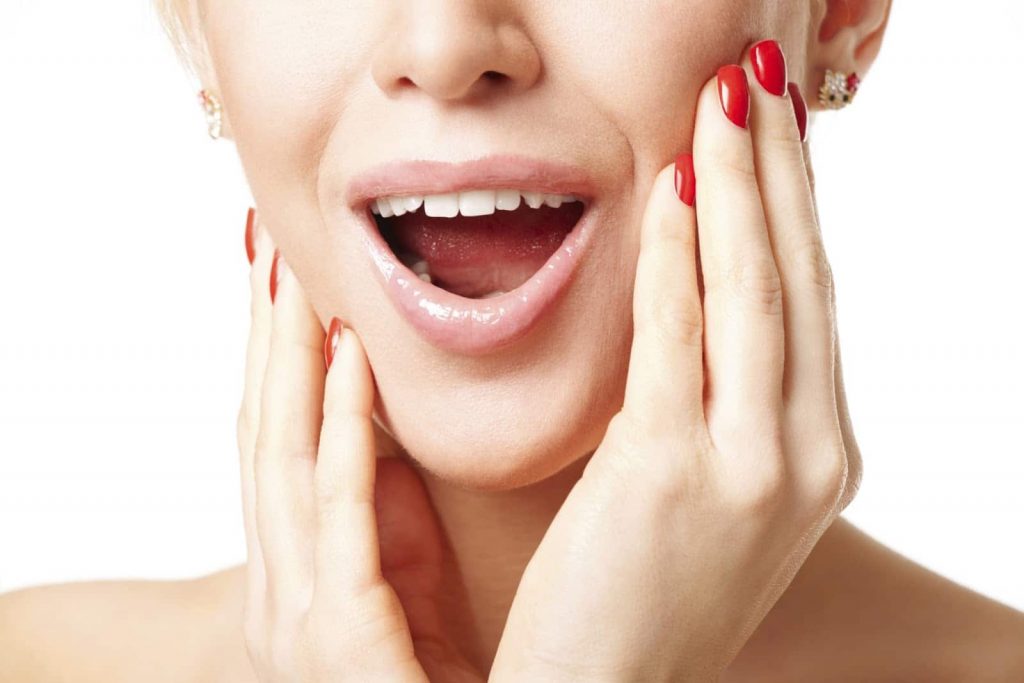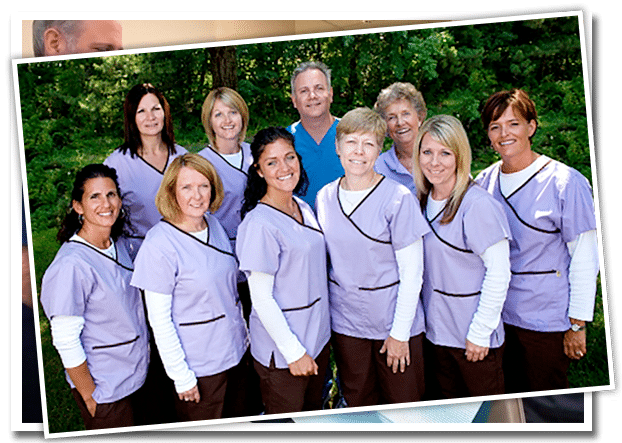TMJ Dentist Serving North Wales
When the TMJ, short for temporomandibular joint, is not aligned as it should be, stress is placed on the other muscles on joints in the TMJ, causing a TMJ disorder. In other words, pain is in your jaw joints and pain is coming from the muscles that control your jaw joint. This is the sort of dental procedure that calls for a dental procedure with a TMJ dentist serving North Wales.
How Do You Diagnose TMJ Problems?
The signs and symptoms of TMJ problems can be determined when you ask yourselves questions related to what you are experiencing at the moment. You should be able to do some self diagnosing for signs of a TMJ disorder by seeing a handful of the following problems apply to you:
- When you wake up do you have stiff muscles or soar around your jaws?
- Are you clenching or grinding your teeth
- Do you frequently get neck aches or headaches?
- If you clench your teeth does the pain get worse?
- When you stress does the clenching and pain get worse?
- When you open your mouth can you feel and hear your jaw click, pop, grate, catch, or lock?
- When you open your mouth, eat or yawn Is it difficult or painful?
- Have you ever injured your neck, head, or jaws?
- Have you had problems with other joints such as arthritis?
- Do you have teeth that fail to touch when you bite?
- Do your teeth meet differently from time to time?
- Is it difficult to use your front teeth to tear and bite into food?
- Do you have sensitive teeth, worn, loose or broken?
The more times you thought “yes” to the above questions, the more likely it is that you have a disorder related to TMJ. A general rule of thumb is that you may experience difficulty in yawning, opening your mouth or eating. Understanding TMJ problems will also help you understand how TMJ disorders can be treated.

Treatment Options for TMJ
There are numerous treatment options that can improve the balance and function of your jaw. When you schedule an appointment with a TMJ dentist serving North Wales, the first step would be to provide a dental evaluation to confirm a TMJ disorder and a prescribed treatment plan. It is important to note that treatment always works best with a combined approach of self-care accompanied with professional dental care. The first goals are to stop the muscle spasm and relieve joint pain. This is usually treated with a pain reliever, anti-inflammatory, or muscle relaxant. Steroids can be injected directly into the joints to reduce pain and inflammation. Self-care treatments can often be effective as well and include:
- Relaxing your jaw
- Keeping your teeth separated when you are not eating or swallowing
- Eating foods that are soft
- Utilizing ice and heat
- Jaw exercises
- Ensuring proper posture
Various techniques used for stress management such as biofeedback or physical therapy may also be recommended, as well as a night guard. A night guard fits over your top or bottom teeth and helps keep your teeth separated, essentially relaxing the muscles and reducing pain. There are different types of appliances used for different purposes. A night guard helps you eliminate grinding or clenching your teeth and minimizes muscle tension at night and helps to protect the cartilage and joint surfaces. An anterior positioning appliance moves your jaw forward, alleviates pressure on parts of your jaw and helps in disk repositioning. It may be worn 24 hours/day to help your jaw heal. An orthotic stabilization appliance is worn 24 hours or just at night to move your jaw into the proper position. Appliances also help to protect from tooth wear.
TMJ Treatment for Patients in North Wales, Montgomeryville, Doylestown, Warrington, Upper Gwynedd, Lower Gwynedd, Lansdale, Horsham, and Surrounding Areas.
Various techniques used for stress management such as biofeedback or physical therapy may also be recommended, as well as a nightguard. A night guard fits over your top or bottom teeth and helps keep your teeth separated, essentially relaxing the muscles and reducing pain. There are different types of appliances used for different purposes. A nightguard helps you eliminate grinding or clenching your teeth and minimizes muscle tension at night and helps to protect the cartilage and joint surfaces. An anterior positioning appliance moves your jaw forward, alleviates pressure on parts of your jaw, and helps in disk repositioning. It may be worn 24 hours/day to help your jaw heal. An orthotic stabilization appliance is worn 24 hours or just at night to move your jaw into the proper position. Appliances also help to protect from tooth wear.
Things To Do To Avoid TMJ problems
If you are experiencing TMJ pain, you can start doing a couple of things pending when you go for a TMJ treatment in North Wales. A soft diet will help with easing the pain away. Customized splints, placed between your teeth, help in preventing clenched teeth and teeth grinding. This would help in putting the TMJ joint at rest and reduce the pain by healing the hurt area. The pain subsiding does not take away from the fact that you will likely still need the customized splints to remain in place. Ask your dentist about customized splints for TMJ problems and find out if it may be right for you. You can perform exercises, such as chin tucks and forward jaw movement and rested closing are some exercises that help TMJ pain relief. A study conducted by Haketa et al. (2010), teaches that TMJ exercises assist in relieving TMJ joint pains.
What About Bite Correction Surgery?
If you are diagnosed with a TMJ disorder that causes issues with how your teeth fit together, recommended treatment might include bite adjustment (equilibration), orthodontics with or without jaw reconstruction or restorative dentistry, and above all, scheduling an appointment with a TMJ dentist near North Wales. Other options such as surgery, arthroscopy, or open joint restructuring are reserved for very severe cases. Highpoint Dental Medicine considers TMJ surgery only when the jaw does not open, is dislocated, has severe degeneration, or the patient has undergone appliance treatment unsuccessfully

What you can expect from us:
- A high degree of professional skill and ability.
- Dedication to your oral health care.
- Proper preventive care that minimizes costly reconstructive work.
- Extra effort to make your visits as comfortable as possible.
- The right treatment at the right time. Fees that are fair and just for the services provided.
Our Philosophy
We believe that open communication between patient, doctor and staff builds a solid foundation for quality care and service. We encourage you to become proactively involved in your treatment and look forward to answering any questions you may have. Please contact our office at 215-583-3543 or by e-mail at info@highpointdental.com any time you have a question regarding your dental care.
Our Top Dentists Serving North Wales
Top Cosmetic Dentist

Brian Wilk, DMD
Cosmetic Dentist Chalfont, PA
Dr. Wilk believes strongly in ‘doing the right thing’ and prides himself in providing the highest quality cosmetic and comprehensive dental care available. Read More About Dr. Wilk
Top Pediatric Dentist

Jill Zurek, DDS
Pedodontist Chalfont, PA
“Dr. Jill”, is originally from upstate New York and loves being a top children’s dentist. She is also an affiliated dentist with The Children’s Hospital of Philadelphia. Read More about Dr. Zurek
Top Endodontist

Alexander Fuller, DMD
Endodontist Chalfont, PA
As a Top Endodontist, Dr. Fuller is a member of the American Dental Association, the Pennsylvania Dental Association, and the American Association of Endodontists.Learn more about Dr. Fuller

